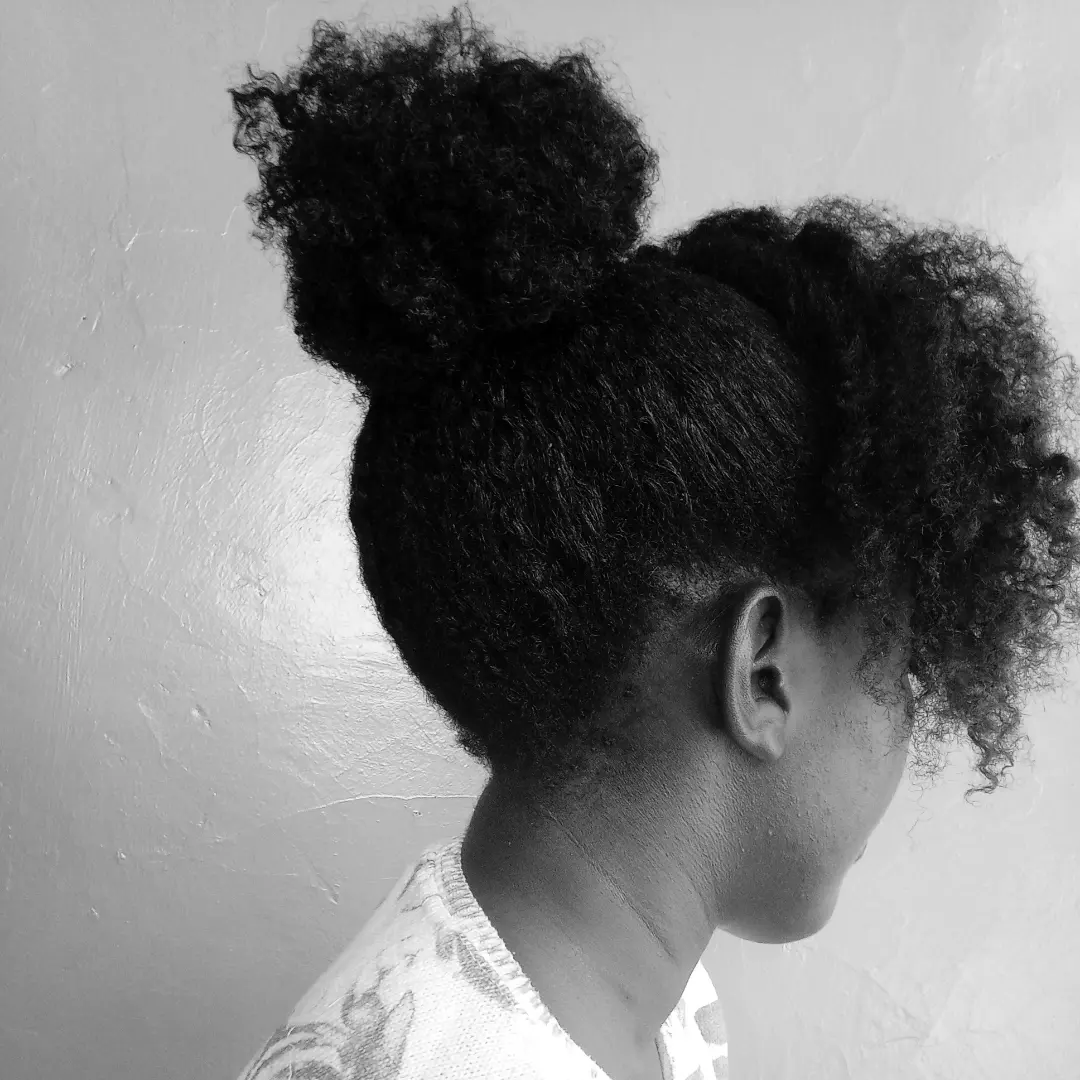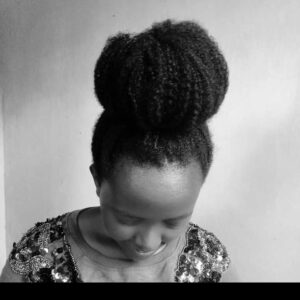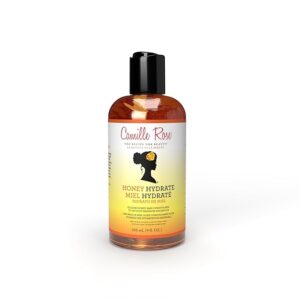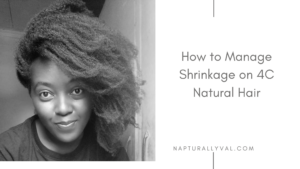4C natural hair is a beautiful, versatile hair type, but it’s also delicate and highly prone to damage. Whether you’re just starting your natural hair journey or you’ve been caring for your hair for years, knowing how to properly protect and prevent damage is essential for retaining length and maintaining healthy, vibrant hair. From breakage to dryness, heat damage, and more, 4C hair requires specific care to stay healthy and strong.
In this blog post, we’ll dive into how to prevent hair damage on 4C natural hair, offering tips, tricks, and best practices that will keep your curls thriving. Whether you’ve experienced setbacks in your growth journey or are trying to get ahead of potential damage, this comprehensive guide is for you.
Feel like your hair has been the same length forever, I’ve an Ebook that will help you grow your hair healthier, longer and thicker. Grab your copy here… Also, check out all the Ebooks,guides and journals that will go a long way in your hair care journey here.
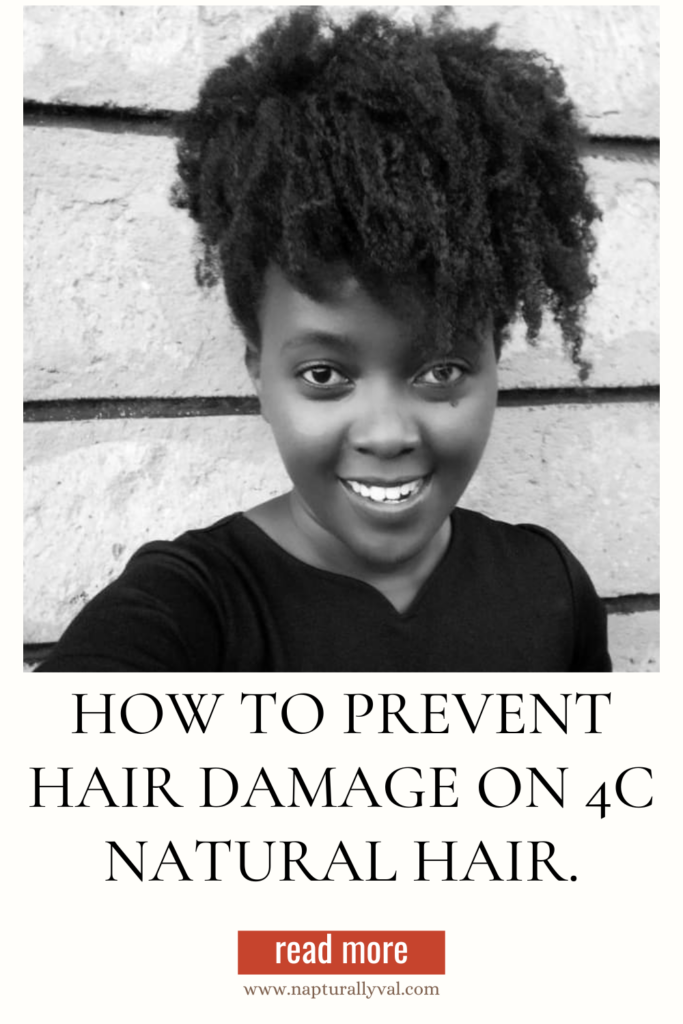
Table of Contents
Understanding 4C Hair and Its Needs
Before diving into damage prevention strategies, it’s important to understand the unique characteristics of 4C hair. 4C hair is coily, with very tight zig-zag patterns that can shrink up to 75% of its actual length. Due to the tight curls, natural oils from the scalp have a harder time traveling down the hair shaft, which makes 4C hair prone to dryness. This lack of moisture, combined with fragile strands, makes 4C hair more susceptible to breakage, split ends, and other forms of damage if not properly cared for.
Common Causes of Hair Damage on 4C Hair
There are several culprits that can lead to damaged 4C hair. Identifying these causes is the first step toward prevention.
- Dryness: The most common cause of damage is dryness. Since 4C hair struggles to retain moisture, it can easily become brittle and break off if not properly hydrated.
- Excessive Manipulation: The more you handle your hair—whether it’s detangling, styling, or combing—the more likely you are to experience breakage. 4C hair is fragile and needs to be treated with care.
- Heat Damage: Heat styling, such as using flat irons, blow dryers, or curling wands, can permanently alter the curl pattern of 4C hair, leading to heat damage.
- Chemical Treatments: Relaxers, perms, or color treatments can weaken the structure of 4C hair, making it more prone to breakage and damage over time.
- Improper Detangling: Harsh detangling methods, such as using small-tooth combs or detangling dry hair, can cause excessive breakage.
- Lack of Protection: Sleeping without protecting your hair or skipping protective styles can lead to friction, which causes split ends and breakage.
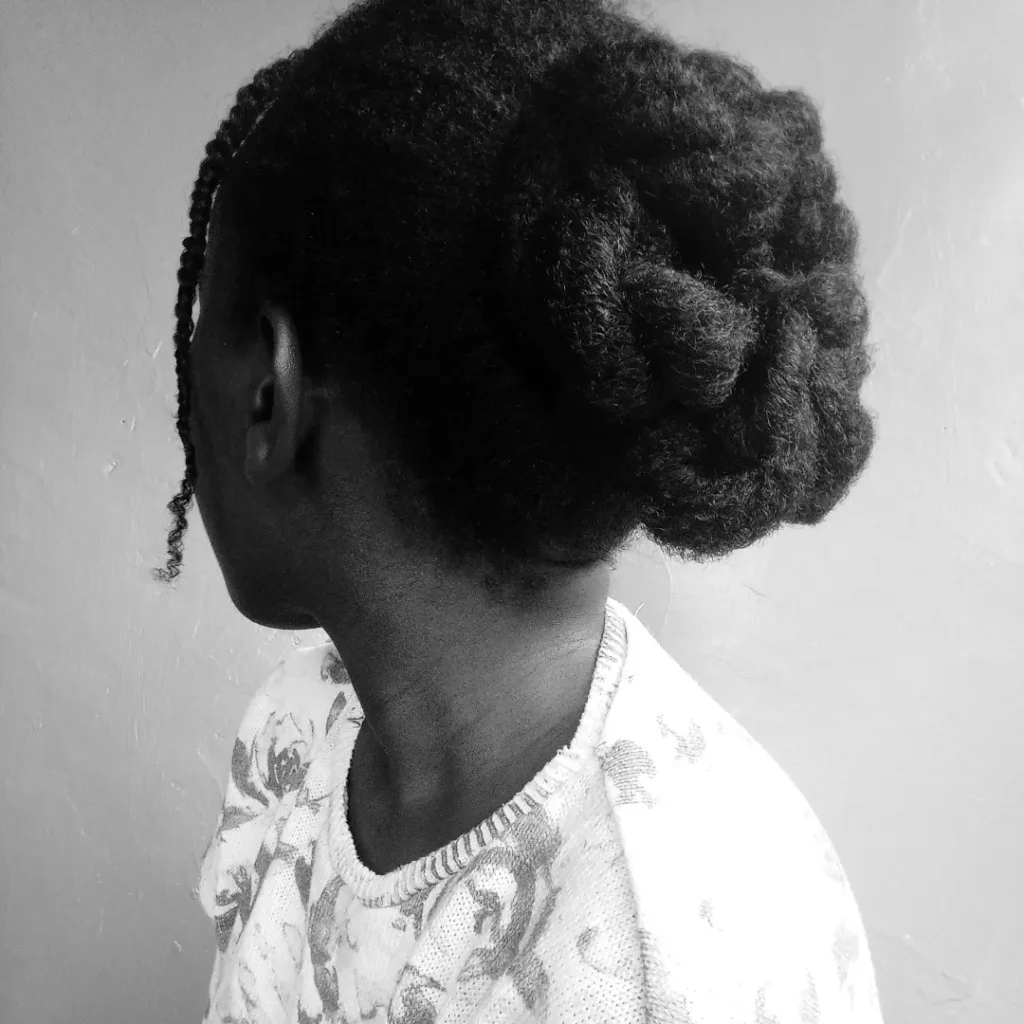
Now that we know what leads to damage, let’s discuss the key steps you can take to prevent it.
How to Prevent Hair Damage on 4C Natural Hair
Moisture Retention: The Key to Preventing Dryness
Since 4C hair is prone to dryness, keeping your hair moisturized is essential for preventing damage. Moisture retention involves a few important steps.
1. Moisturize Regularly
Your hair needs a consistent moisturizing routine. This means applying moisture, typically water or water-based products, to your hair regularly. Opt for lightweight leave-in conditioners, hydrating sprays, and moisturizers formulated for natural hair.
Best Moisturizers for 4C Hair:
- SheaMoisture Jamaican Black Castor Oil Strengthen & Restore Leave-In Conditioner
- OKAY Black Jamaican Castor Oil Moisture Growth Leave In Conditioner
- Artnaturals Argan Oil Leave-In Conditioner
2. Seal in Moisture with Oils and Butters
Moisturizing isn’t enough; you need to lock in that moisture with oils or butters. After applying a water-based product, follow up with natural oils like coconut oil, jojoba oil, or shea butter. This helps prevent moisture from evaporating from your strands.
Best Sealants for 4C Hair:
3. Deep Condition Often
Deep conditioning treatments are a must for 4C hair. These treatments penetrate the hair shaft, providing long-lasting moisture and strength. Incorporate deep conditioning into your routine at least once a week, especially if your hair feels dry or brittle.
Best Deep Conditioners for 4C Hair:
- TGIN Honey Miracle Hair Mask
- Aunt Jackie’s Fix My Hair Intensive Repair Conditioning Masque
- SheaMoisture Intensive Hydration Hair Masque Manuka Honey & Mafura Oil
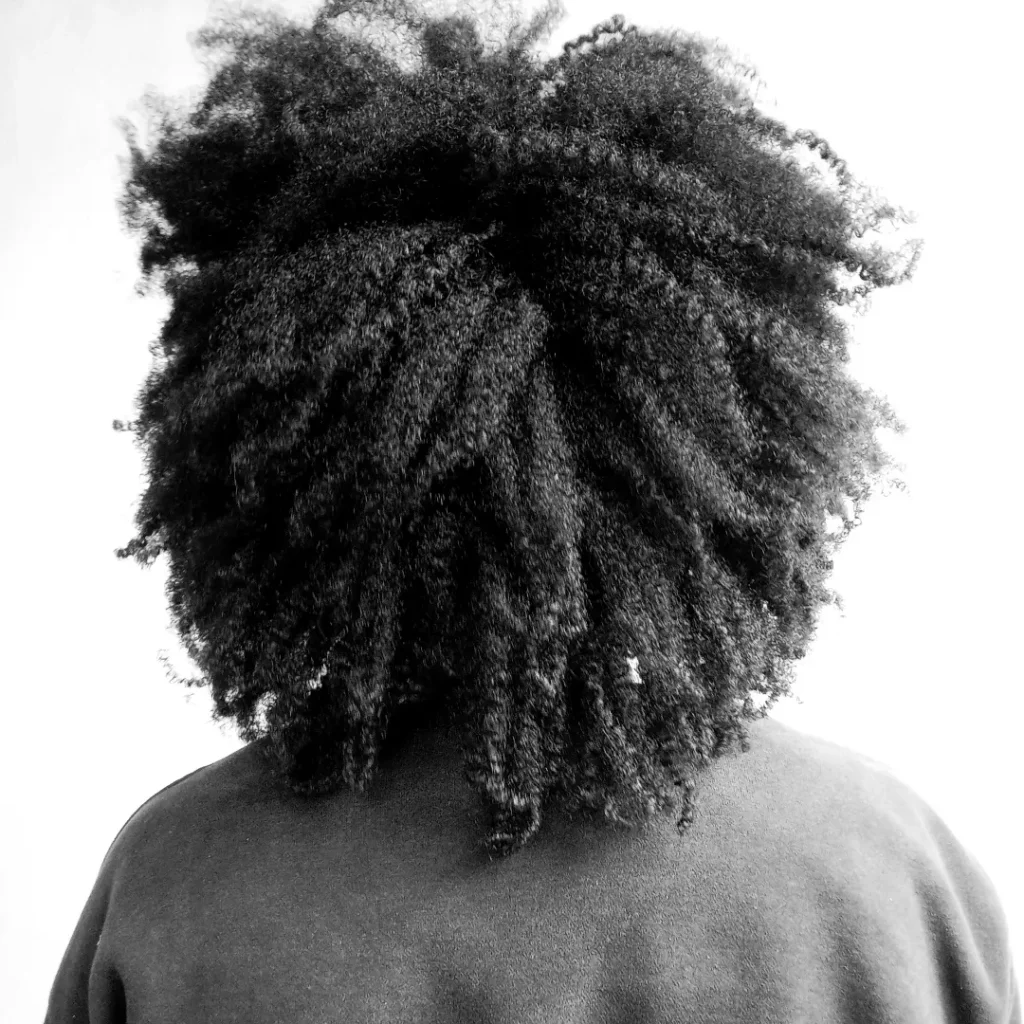
Limit Manipulation: Protect Your Hair from Breakage
Excessive manipulation can cause unnecessary breakage. Here’s how you can handle your hair with care to minimize damage:
1. Use Protective Styles
Protective styling is a game-changer for 4C hair. Styles like braids, twists, and cornrows protect your ends and limit the amount of manipulation your hair experiences. The less you handle your hair, the less likely you are to experience breakage.
However, make sure your protective styles are not too tight, as tension can lead to traction alopecia (hair loss from pulling). Always give your scalp breaks between styles to allow your hair to recover.
Be gentle when handling your 4C hair. Always detangle with a wide-tooth comb or your fingers to prevent unnecessary breakage. Start detangling from the ends and work your way up to the roots, ensuring you’re not yanking on your hair.
3. Reduce Detangling Sessions
Frequent detangling can lead to breakage, so try to limit detangling to once or twice a week. When detangling, ensure your hair is damp and use a slippery conditioner or detangler to minimize friction.
Protect Your Hair from Heat Damage
Heat styling tools, like flat irons and blow dryers, can cause severe damage if used improperly on 4C hair. Here’s how to protect your hair from heat damage and how to style your hair without causing heat damage.
1. Minimize Heat Usage
The best way to avoid heat damage is to limit how often you use heat tools. Save heat styling for special occasions, and opt for heat-free styles like twists, braid-outs, or roller sets for everyday looks.
2. Use a Heat Protectant
When you do use heat, always apply a heat protectant to your hair. Heat protectants form a barrier around your strands, preventing the heat from penetrating and damaging the hair shaft.
Best Heat Protectants for 4C Hair:
- Tresemmé Thermal Creations Heat Tamer Spray
- Hair Food Coconut & Argan Oil Heat Protectant Leave-In Spray.
3. Use the Lowest Heat Setting
High heat can cause irreparable damage to your hair, so always use the lowest heat setting that will still give you the desired result. Remember, you don’t need to pass the flat iron over your hair multiple times—one or two passes should be enough if done correctly.
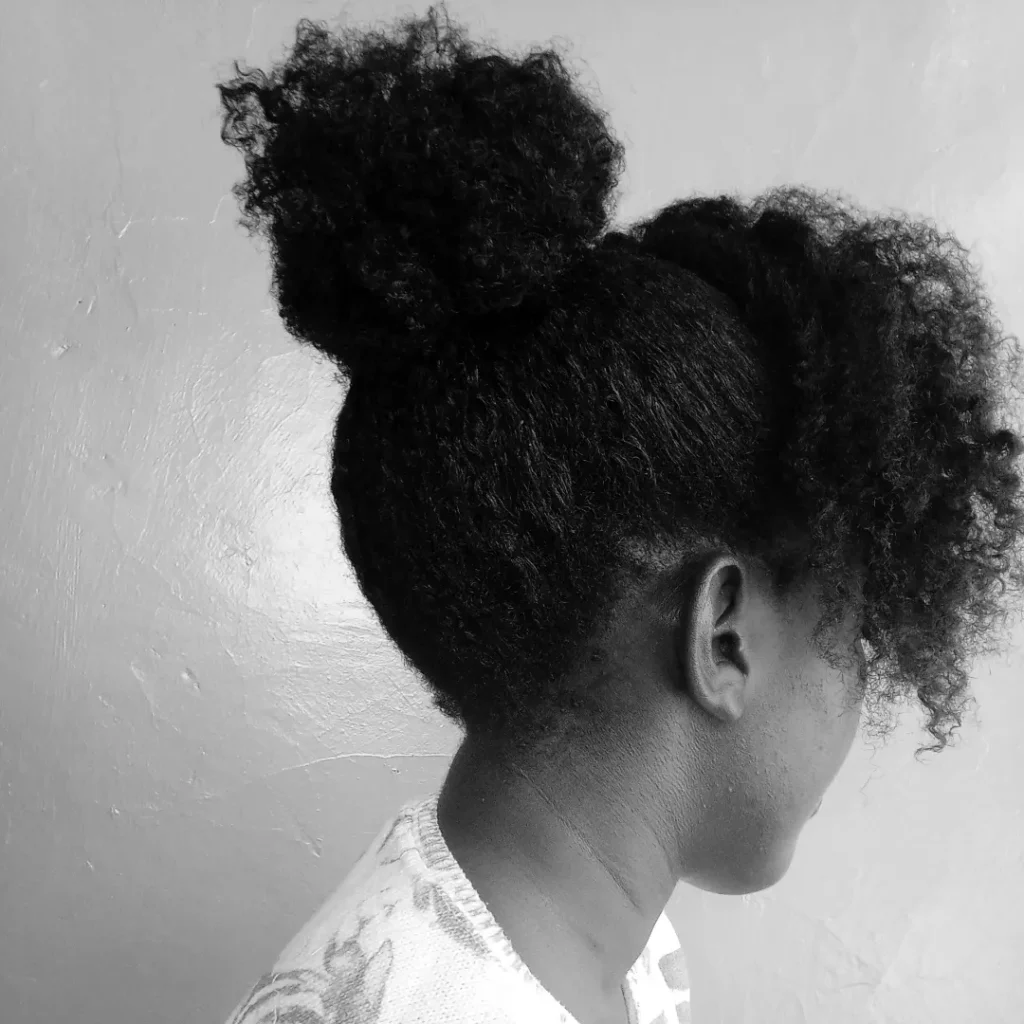
Avoid Chemical Treatments
Chemical treatments, like relaxers or perms, weaken the protein structure of your hair. This can lead to breakage, thinning, and overall damage. If you want to avoid chemical damage:
- Consider transitioning to natural hair: Many people with 4C hair have found that embracing their natural texture has led to healthier hair in the long run.
- Be cautious with color: If you decide to dye your hair, opt for ammonia-free, semi-permanent dyes, and ensure you moisturize and deep condition your hair regularly afterward to prevent dryness.
Protect Your Hair at Night
Nighttime care is just as important as daytime care when it comes to preventing damage on 4C hair. Here’s how to protect your hair while you sleep:
1. Use a Satin or Silk Bonnet
Cotton pillowcases can cause friction, leading to breakage and split ends. Instead, sleep with a satin or silk bonnet, or use a satin pillowcase. These materials reduce friction and help your hair retain moisture throughout the night.
2. Moisturize Before Bed
Before heading to bed, apply a light mist of water or a moisturizing spray to your hair to ensure it stays hydrated overnight. Follow up with a small amount of oil to seal in the moisture.
Maintain a Healthy Scalp
A healthy scalp is the foundation for healthy hair. Scalp issues like dandruff or product buildup can clog hair follicles and stunt hair growth. Here’s how to maintain a healthy scalp:
1. Cleanse Regularly
Washing your scalp regularly helps to remove dirt, oils, and product buildup that can clog your hair follicles. Use a sulfate-free shampoo or a cleansing co-wash to gently cleanse your scalp without stripping it of its natural oils.
Best Shampoos for 4C Hair:
- SheaMoisture Jamaican Black Castor Oil Strengthen & Restore Shampoo
- As I Am Coconut Co-Wash Cleansing Conditioner
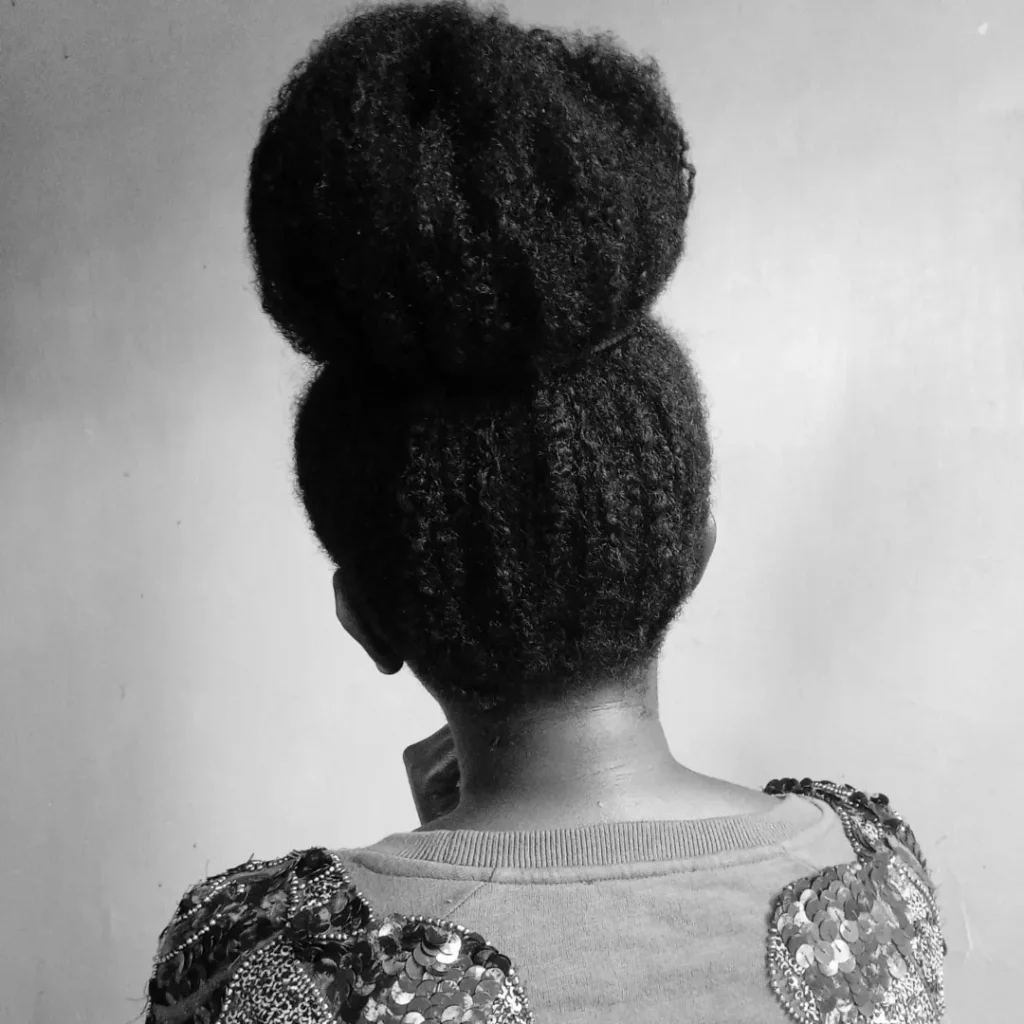
Massaging your scalp stimulates blood flow, which promotes hair growth. You can use your fingertips or a scalp massager to gently massage your scalp while applying oils like castor oil or peppermint oil.
Preventing hair damage on 4C natural hair requires consistent care, gentle handling, and protective styling. By focusing on moisture retention, limiting manipulation, protecting your hair from heat, and maintaining a healthy scalp, you’ll be well on your way to stronger, healthier hair.
With these practices in place, you can confidently embrace your 4C hair’s natural beauty while keeping damage at bay. Remember, patience and consistency are key—healthy hair habits will lead to long-term results.

